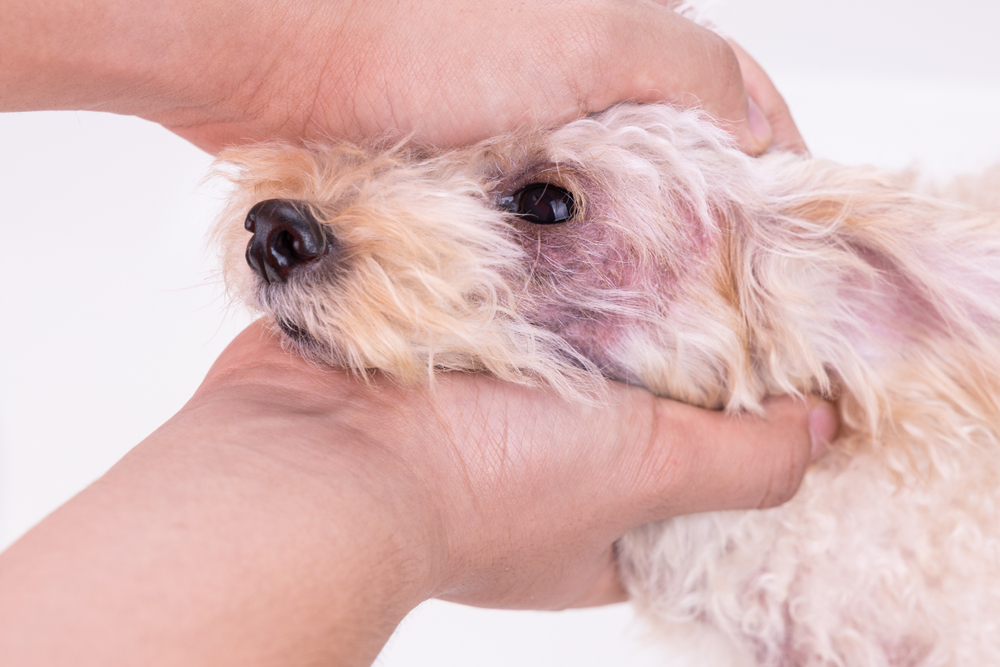Itching has become such an epidemic
This might be as dry as a rice cake and to be honest, I thought I might be able to put you to sleep but all joking aside, although this blog doesn’t give you exact solutions, you can see how we look at allergies and how we approach itchy pets with great knowledge and success. Now put on the kettle and don’t read this horizontally in bed; falling asleep is guaranteed.
Although this is from a scientific and pathophysiological perspective, I’m yet to meet a conventional veterinarian who looks at itchy pets in the same way.
Allergy/itching is one of the most prevalent problems seen by vets and My Pet Nutritionist to date. It’s almost become my life’s work to understand how and why this happens as I get clients everyday with the same issues. Natural means is really the only way to go to solve this issue but to do this successfully, we need to understand the complex immunity and physiological pathways to deal with the problem through nutrition and supplements.
In short, itching and allergies are due to an overactive and underachieving immune system as well as possible genetic and nutritional snips and deficiencies.
The immune system is so finely tuned you wouldn’t get your breath. There's so much we don't know and some of the following has thin scientific research. In more than basic terms the immune system is split into 2 parts, Th1 and Th2 (actually there is a more newly discovered TH3 and TH17 but let’s not complicate things). Both parts should work in harmony and balance.
Th1 and Th2 cells are maintained in a carefully regulated balance. If a bacterium enters the body, it activates Th2 cells that dominate the network to begin a cascade of immune events leading to an antibody response that clears the infection. If a virus enters cells in the body, it activates Th1 cells which dominate and instruct the killer cell response to clear infected cells. Once the infection is cleared up, suppressor cells are activated to shut down the dominate response and bring the network back into what we call a resting state. If the suppressor cells do not act to bring the network back to a resting state, a pathological Th1-or Th2 dominated immune system results.
A Th1 dominated immune system is characteristic of food intolerances and autoimmune diseases, such as type 1 diabetes where the immune system is attacking normal tissues. A Th2-dominated immune system is characteristic of allergies and cancer and so forth. The incessant itching arises from an excessive and dominant reaction in the immune system. In Th2 allergic reactions (IGE), histamine is the compound released.
There are several things we need to consider to piece it all together. Breeding has a lot to do with it and can dominate how well they will be in life, unless you have people like us on board.
Factors to be considered are:
· Genetics; it’s like a lottery and no matter what kennel club certifications you have there are no guarantees. Certain breeds are always more at risk.
· Foetal development and birth; how healthy is the mother, what is she fed and how many litters she has sired previously, all come into play. Certain breeds don’t experience the healthy birthing through the canal such as some French Bull dogs. C-section is proven to under develop the much needed microbiota in your pet’s gut and can pre determine how balanced immunity will be. During pregnancy the mother is TH2 dominant which means so is your pup or kitten when born, this is cleverly put back into balance during weaning.
· Breast feeding and weaning; feeding from mother and getting the first colostrum and being fed like this for a good 10-12 weeks is so important for immunity and reactions. Many people arrive home with their new pet at 8 weeks’ old which is way too young. This might not allow for puppy or kitten to modulate immunity and come out of TH2 dominance and balance nicely.
· Environmental challenges in the early months; Initial vaccinations are important but timing is essential in allowing the immune system to respond accordingly. Also being exposed to different proteins and a healthy diet helps build a positive immunity and reaction to foods in future months.The first few months determine a lot and you don’t always have control over this.
How our pet interfaces with the world, very much dictates whether immune dysfunction comes into play from the above points. The below considerations need to be looked at in its entirety not individually.
Causative factors of itching to be considered:
· Physiological and emotional stress; we know stress triggers inflammation and a TH2 dominance, those with allergies are naturally be more TH2 dominant.
· Intestinal permeability; allowing for the escape of undigested proteins and pathogens through the gut wall and directly into the bloodstream, evoking prolonged inflammatory immune responses. Stress, diet, poor microbiota and environmental toxins can all destroy epithelial mucosa that cause intestinal permeability.
· Altered gut microflora; c-section, early weening, stress, diet, hormones and so on can effect gut bacteria and immunity.
· Hormonal imbalances; cortisol, oestrogen, thyroid hormones are actively associated with histamine behaviour and imbalance of immunity TH2 dominance. We de sex most of our dogs and wonder why they have so many issues. I’m glad no one gave me a hysterectomy in my first few years of life.
· Diet & nutritional deficiency; poor or an inappropriate diet can trigger TH1 or TH2 dominance and so will make reactions worse. Some foods such as wheat, grains, soy, gluten and corn are known foods to elicit reactions but it can get really complicated.
· Genetics; certain genetic polymorphisms affect immune TH1/TH2 dominance, DAO/MAO polymorphisms mean genetically your pet is less able to metabolise/breakdown histamines in the body. We know histamine to be the most related immune response to intolerances and allergies (a.k.a Histamine intolerance). Blog on Histamine Intolerance here.
· Heavy metal toxicity; I don’t need to tell you how this toxicity infiltrates and permeates every function in the body, effecting immunity.
· Poor detoxification pathways; the body needs to be able to excrete certain metabolites for healthy immunity including histamine. The liver is a powerhouse and needs to rid the body of all metabolites.
Considering several different factors and learning how to modulate the immune system allows us to deal with this naturally and successfully. Food, nutritional supplements and herbs can favourably skew and re-balance dominant T-cell pathways between TH1 and TH2. More on adaptogenic herbs, nutraceuticals and other fabulous ingredients next time!
As we see in allopathic medicine, immunosuppressant medications don’t discriminate, they switch off the ‘normal and healthy’ functioning of the immune system. Both steroids and Apoquel can have a detrimental effect on the health of your pet. There is a great article on how Apoquel affects immunity and health here.
We cover every aspect of immune response in our consultations. If you are at the end of your tether and at a complete loss contact us now, we might just be able to help.
www.mypetnutritionist.com/consultation
Are you still awake?
Ali x








.jpeg)








